EVs in Motorsports: No Longer Just For Pros
[Jan. 24, 2020]
EVs in motorsports is nothing new. Between the open-wheel Formula E series and the production-based Jaguar iPace eTrophy Championship, the world has become familiar with electrified racing. But EV racing isn’t exclusive to the pros.
On June 30, 2019, several electrified vehicles ran the Broadmoor Pikes Peak Hill Climb, including Palatov Motorsport and Cascadia Motion, which competed in their EV creation, the D2EV. The D2EV is a three motor race car producing more than 1,200 hp and 1,000 lb-ft of torque via a 78 kWh battery. The roughly 3,300-pound race car, driven by Greg Tracy, ran in Pikes Peak’s Unlimited class, reaching the top of the mountain second in class.
It has since been revealed that the D2EV utilizes a vehicle control unit from AEM Performance Electronics – the first of its kind for AEM.
Per AEM’s press release: “Under the AEM EV brand, the initial rollout includes two Vehicle Control Units (VCUs) that will deliver motorsports-ready EV tuning capabilities through a simplified, user-friendly interface, a powerful 8-Channel Power Distribution Unit (PDU) module that provides mounting flexibility through the ability to daisy-chain up to eight units together over a CAN bus network and a CAN-based switch panel.”
Currently, AEM tells us, its VCU200 will support up to two electric motors, while the VCU300 is capable of controlling up to four motors.
Lawson Mollica, AEM’s Marketing and Public Relations Director, told us that AEM’s EV control units will work both as a stand-alone systems for a custom vehicle, or as a piggyback for those modifying their existing EV street car.
To produce its AEM EV line, AEM worked with EV tuners including Cascadia Motion, EV West, Hancock and Lane, Pat McCue and MLe Racecars, and Napoleon Motorsports.
AEM displayed the Cascadia Motion D2EV in its 2019 PRI Show booth. Mollica told us that placing an EV in its PRI Show booth was viewed as a risk due to the show’s ICE motorsports clientele, but the response was overwhelmingly positive.
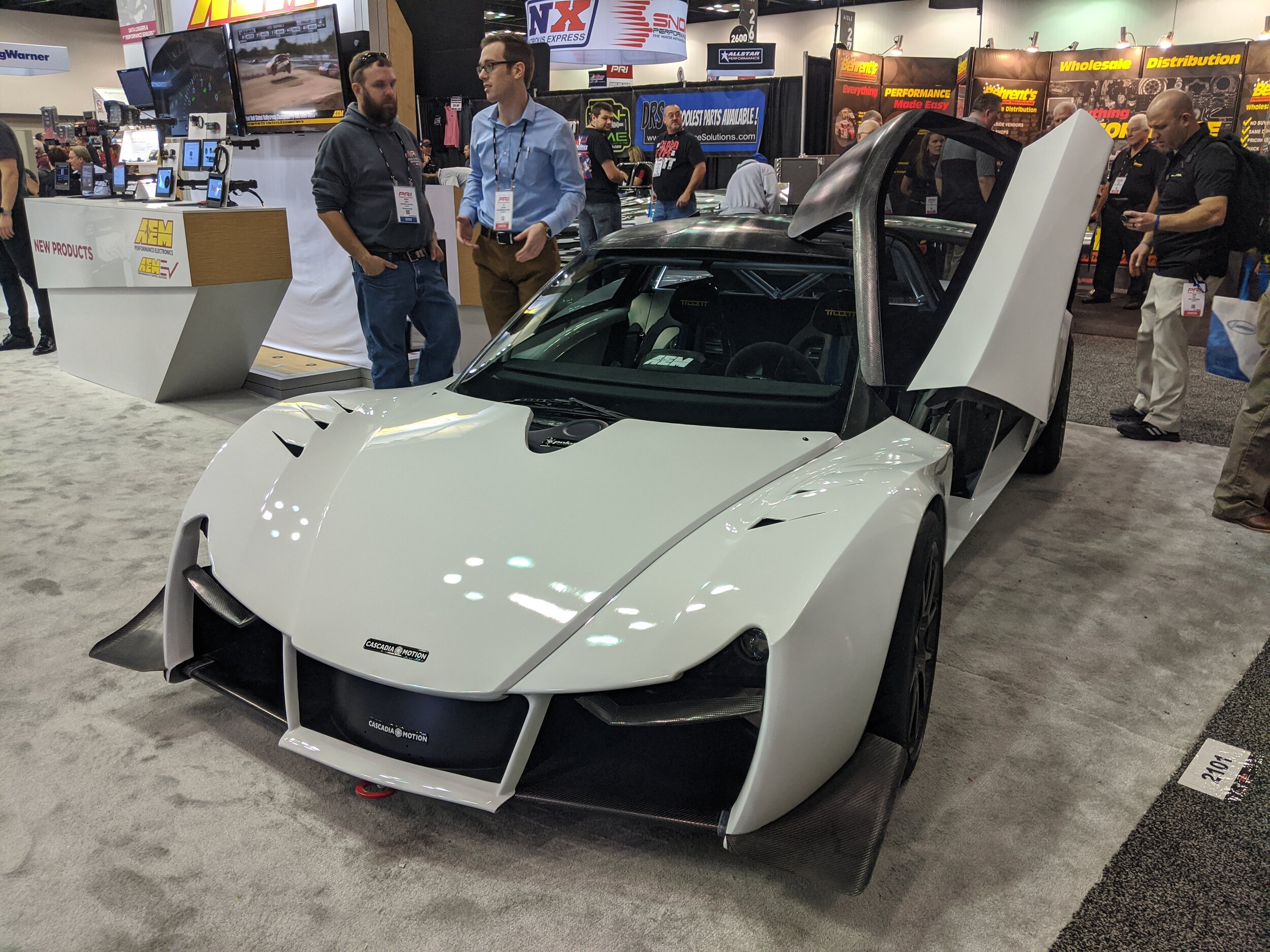
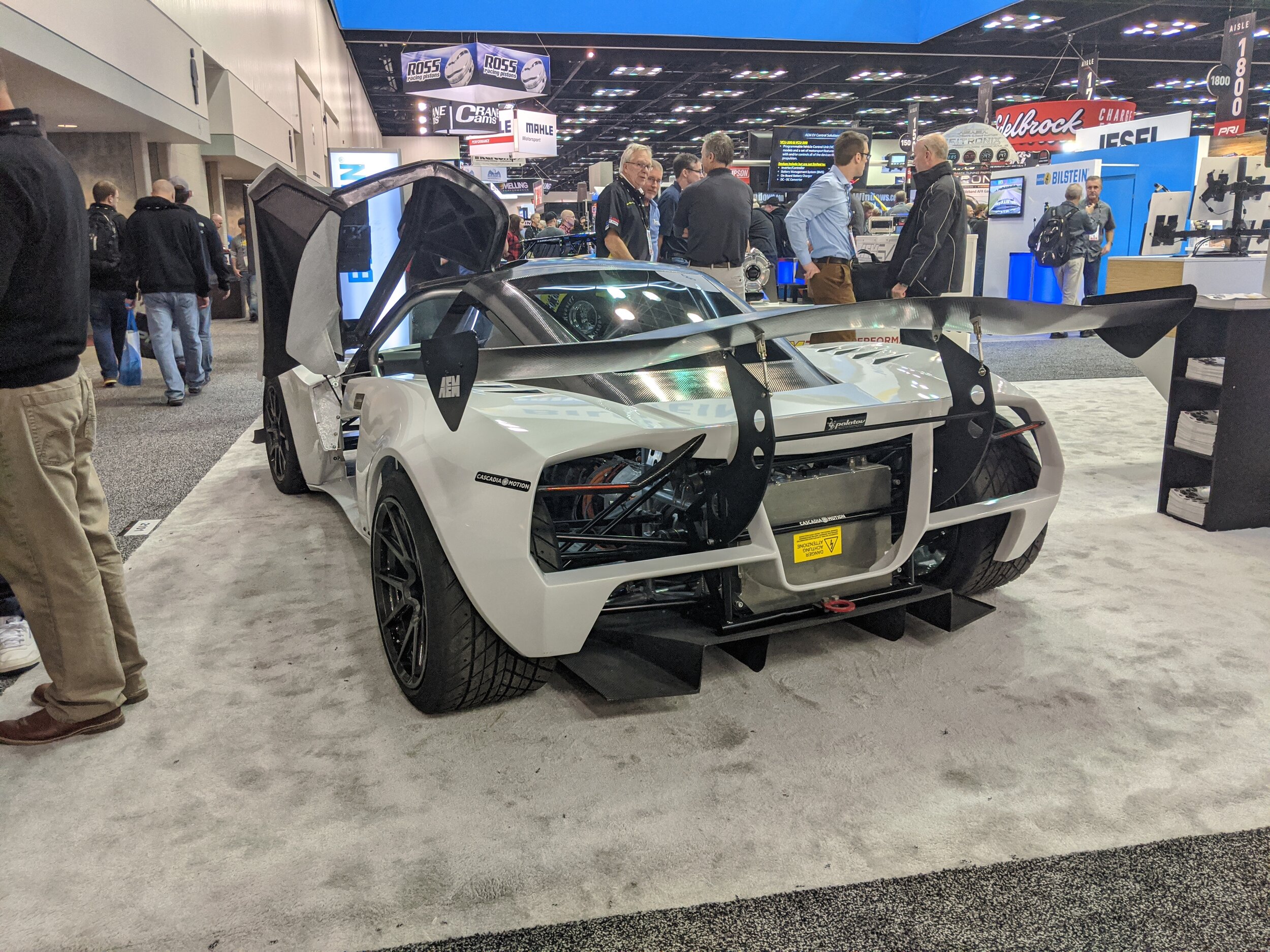
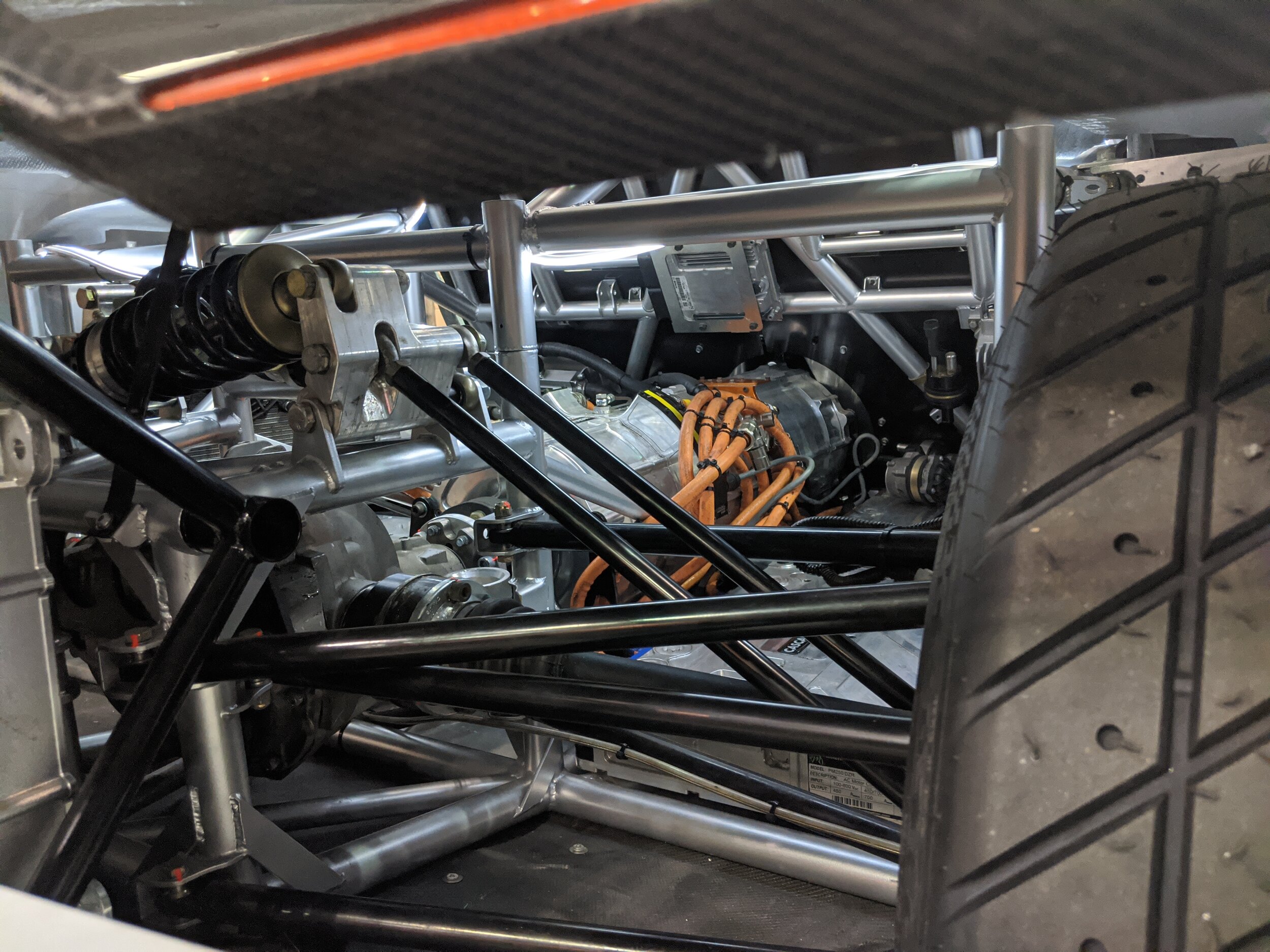
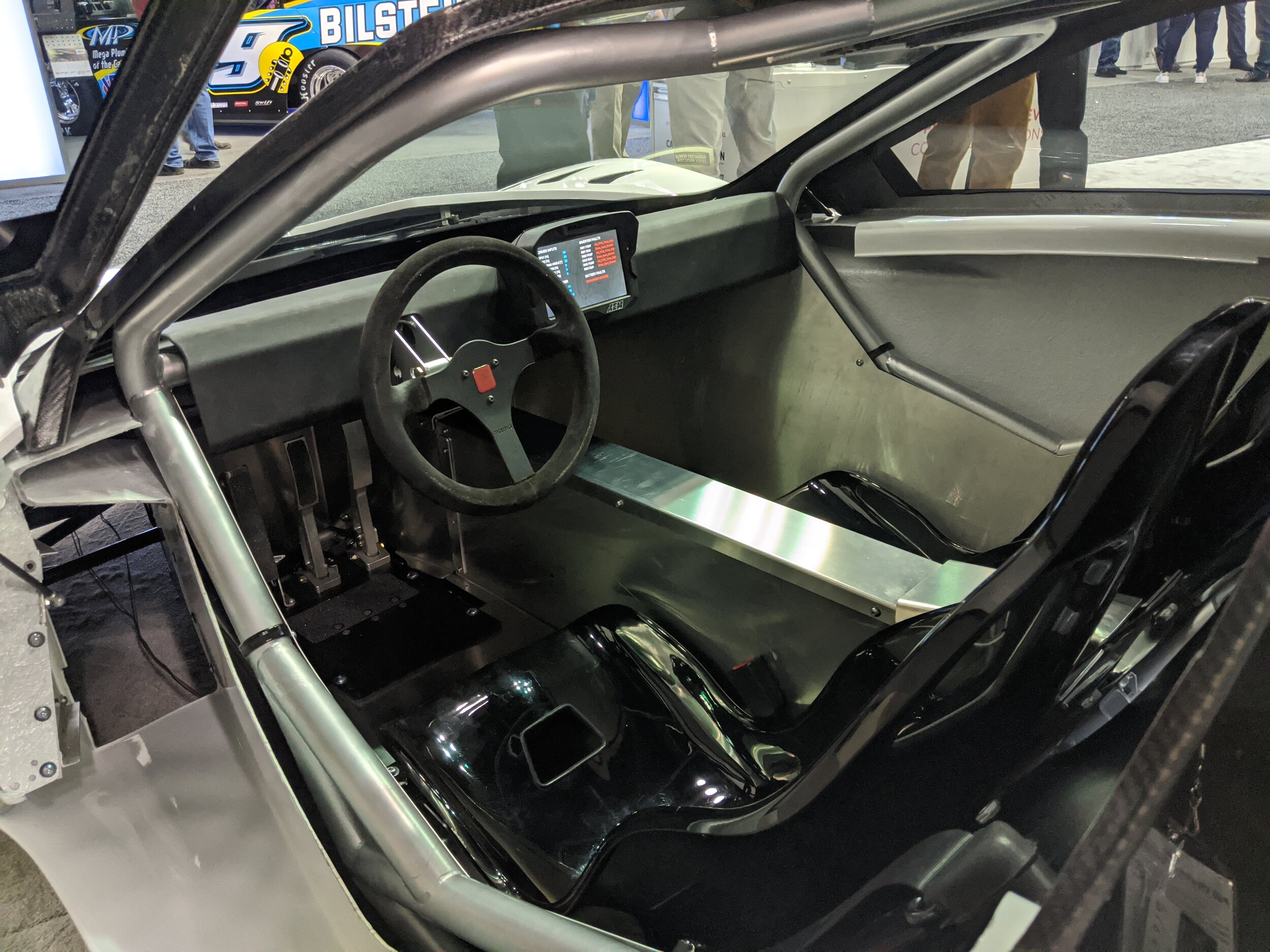
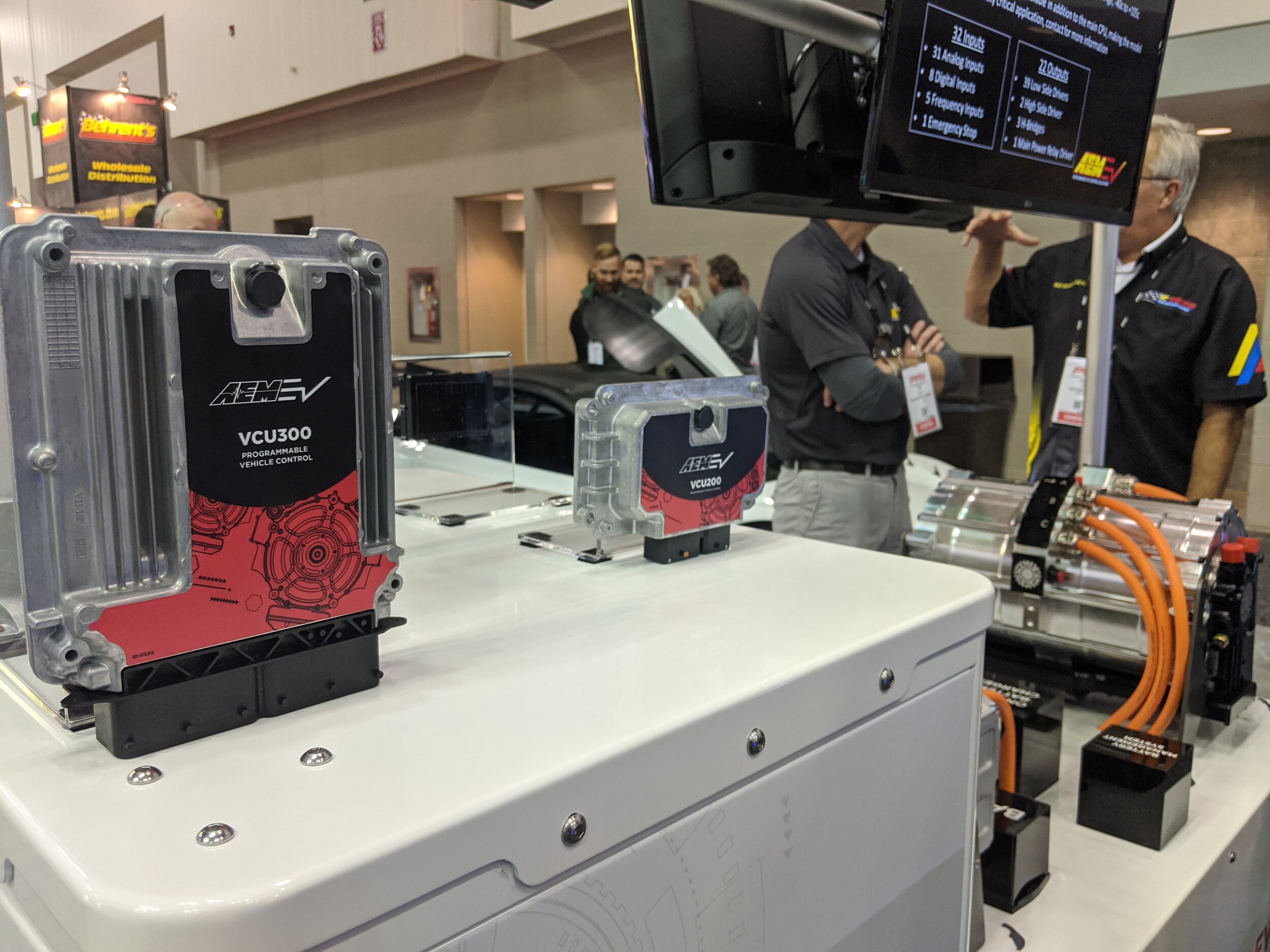
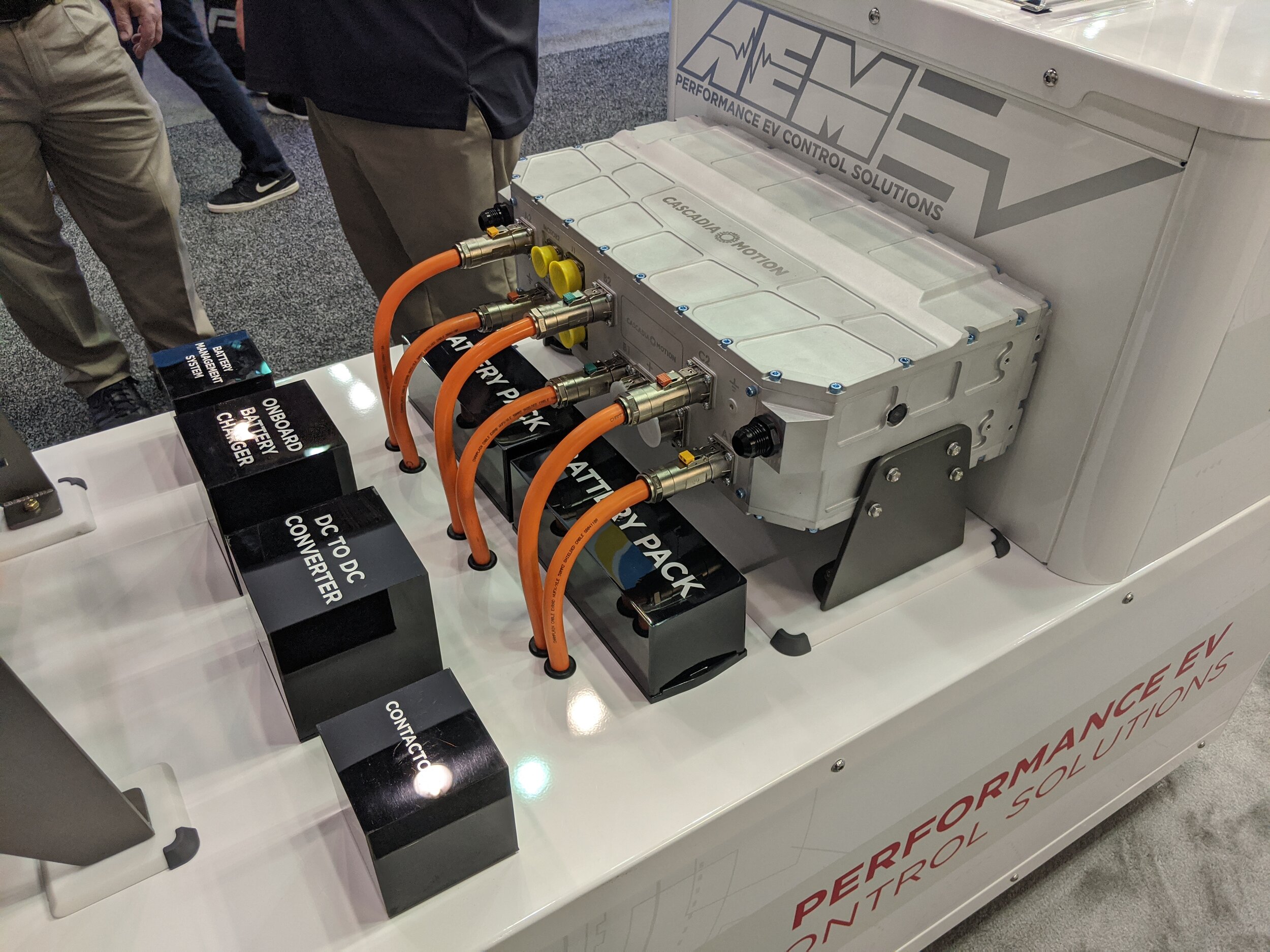
EVs have also been appearing at Sports Car Club of America (SCCA) events. In September 2019, SCCA hosted its annual Tire Rack Solo National Championships, and there, for the first time in nearly 50 years of the event, an EV won an SCCA National Championship autocrosss title.
At the time, the Tesla Model 3 was classed in SCCA’s B Street, pitting it against the likes of the Lotus Evora, Porsche Cayman S, BMW 1M and M2, and Ford Focus RS. After two days of competition, David Marcus emerged on top, besting the second-place Ford Mustang Shelby GT350 by 0.07 seconds. That may not sound like a large margin of victory, but at the SCCA autocross championship, that time differential can be normal.
What wasn’t normal was an EV winning an SCCA National Championship title.
A Tesla Model 3 was the first EV to win an SCCA National Championship autocross title. The SCCA recognized the feat by placing the Model 3 on the cover of its publication. (Image courtesy SportsCar magazine.)
Following the win, Marcus described driving the Model 3 Performance on the autocross course as fast, not fun, he said. “If you’re accelerating, it’s amazing. If you’re not, it’s somewhat painful.” It should be noted that Marcus’ most recent other appearances at that event have been in a Mazda Miata and a Scion FR-S.
The SCCA Solo Events Board has since moved the Model 3 into Super Street, a faster class, where it will compete against the new Acura NSX, Porsche GT3, Corvette ZL1 1LE, and the like (and notably, the NSX, which is a hybrid, won the Super Street title in 2019). The reason for the reclassification was reportedly due to Tesla’s over-the-air performance updates.
But while it may seem like the SCCA is burying EVs in its autocross classing structure, it’s actually embracing the technology. Case in point, during the 2020 SCCA National Convention, SCCA Director of Rally & Solo Mike King noted that the SCCA would be introducing an EV-specific autocross class in 2020.
“It’s one of those things that we could sit on for another year or longer, or we could just jump right in,” King said. “We had a rule set that we put together that made sense, and we couldn’t see a reason not to roll it out right now. Especially at a regional level, where it gives [SCCA] regions a place for those cars to play.”
“[EV’s are] going to change our sport at some point,” King noted. “Is it two years from now? No. But five or 10 years from now, [autocross is] going to look a lot different.”
SCCA’s new EV autocross class rules are expected to be released soon.
Truly, EVs are coming into their own in the world of motorsports.
(Jaguar iPace eTrophy image courtesy of Jaguar)
Like what you read? Follow us on Google News and like us on Facebook!








